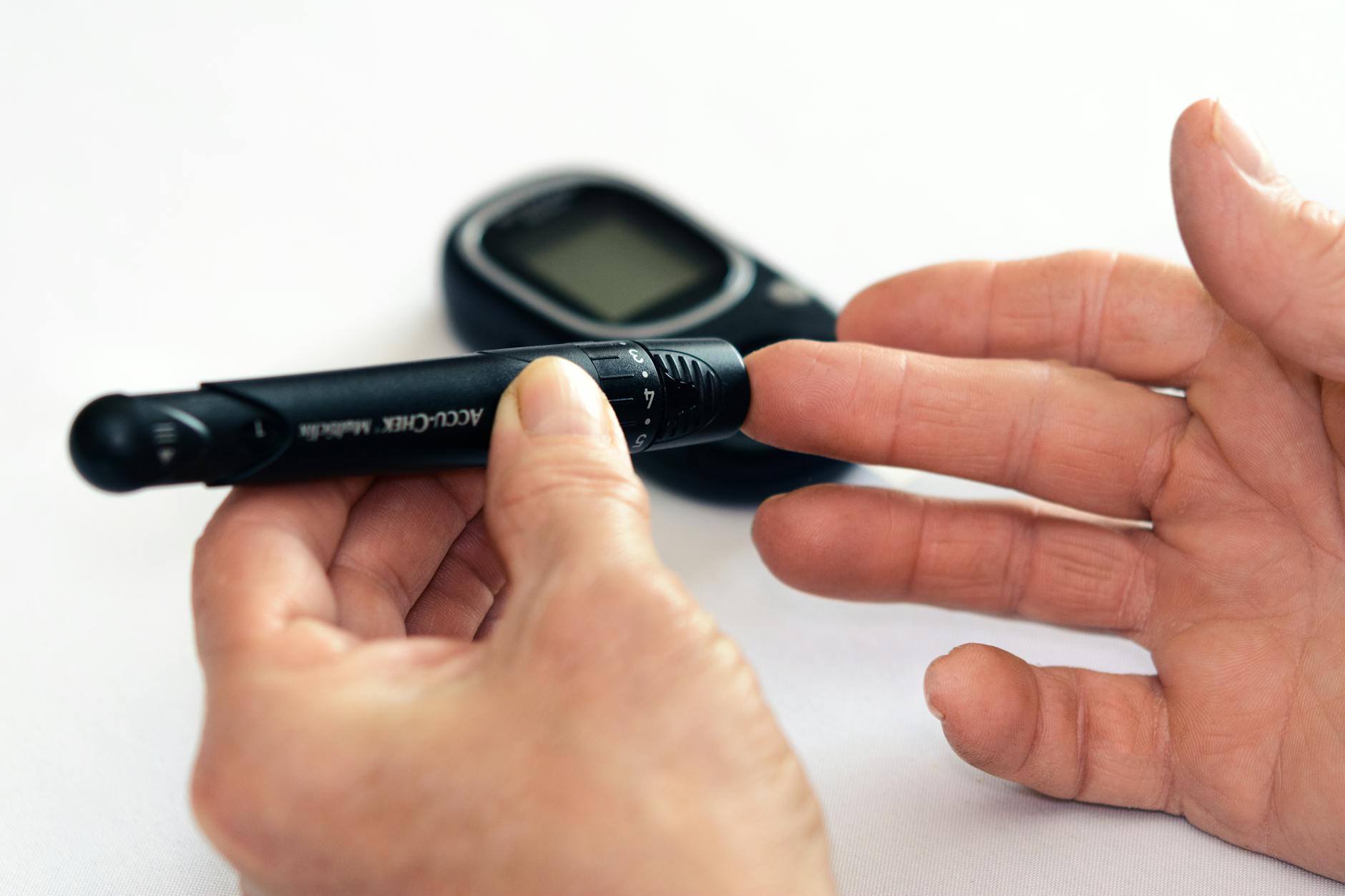Can You Donate Plasma If You Have Diabetes? Everything You Need to Know

Plasma donations save lives, but many with diabetes wonder if they’re eligible. The good news? If your condition is well-managed, donating plasma is often possible. With the rising need for plasma, understanding your eligibility is essential. This post will clarify any concerns and provide key facts to help you decide if donating plasma is right for you.
Understanding Plasma Donation
Plasma donation is a selfless act that can save lives and make a significant impact on those in need of life-sustaining treatments. If you’re wondering how plasma works in the body and what donating entails, this section breaks it down step-by-step.
What is Plasma?
Plasma is the essential, liquid portion of your blood. It’s distinctively yellow and makes up the majority of your blood composition—around 55%. Think of plasma as the “highway” for your blood cells, nutrients, hormones, and waste products. It ensures everything moves smoothly through your bloodstream.
More importantly, plasma is packed with proteins and antibodies that fight infections, assist with blood clotting, and maintain proper hydration and pH levels. Without it, your body’s intricate balance of functions would crumble. For instance, patients with severe burns, immune system deficiencies, or clotting disorders often rely on plasma-derived treatments to manage or recover from their conditions.
If you’d like to dive deeper into the function and importance of plasma, check out this detailed resource from Cleveland Clinic.

Photo by Lucas Oliveira
The Plasma Donation Process
Donating plasma is safe, organized, and takes about 90 minutes, so it’s not a significant time commitment. Here’s what typically happens:
- Arrival at the Donation Center
When you walk into a plasma donation center, you’ll be greeted by staff and directed to complete some initial paperwork. This includes providing identification and basic health disclosures. - Health Screening and Physical Exam
To ensure you’re eligible, you’ll go through a screening. Blood pressure, pulse, hydration levels, and weight are checked to confirm you’re healthy enough to donate. A brief physical examination might also be conducted.You’ll want to ensure your diet and hydration are optimal that day—this plays a role in passing the screening. To learn more specifics, visit this guide on what to expect when donating plasma. - Donation Process
A specialized machine separates your plasma from your blood. Don’t worry, the remaining components—like red blood cells—are returned to your body during the same process. Many donors describe the feeling as similar to giving blood, minus the fatigue. - Rest and Refreshments
After the donation is complete, you’ll be asked to take a short rest. Snacks and drinks are typically provided to help you recover.
Remember, before donating plasma, it’s critical to let the staff know about any medical conditions, treatments, or medications you’re currently taking. For instance, people with diabetes must disclose their condition to ensure donation safety.
If it’s your first time donating, this step-by-step guide from Grifols Plasma can help prepare you for the experience.
By understanding what plasma is and what’s involved in donating, you’re better equipped to decide if this extraordinary act of generosity is right for you.
Key Takeaways
Deciding whether you can donate plasma as a diabetic can feel overwhelming, but the rules are more straightforward than you might think. Below, we’ll break down the key points to understand, focusing on health management, eligibility, and steps to check your status.
It’s Possible to Donate Plasma with Diabetes
Good news for people with diabetes: donating plasma can be an option in many instances. If your diabetes is well-controlled—whether through diet, oral medications, or insulin—you likely meet the basic criteria. However, there are caveats, particularly if you experience complications related to diabetes, such as problems with your heart, kidneys, or blood vessels.
For more insights about eligibility and considerations, check out Virta Health’s guide on donating plasma with diabetes.
Health Matters Most
Doctors and donation organizations prioritize your safety and the safety of plasma recipients. Expect to undergo pre-donation screenings to confirm:
- Your A1C levels are stable and within an acceptable range.
- You are free from diabetes-related complications.
- Your body weight and blood pressure meet donation requirements set by the center.
Managing your blood sugar consistently is essential. If you’re unsure about your condition’s suitability, review a complete eligibility checklist such as this plasma donation guide by KedPlasma.
Be Honest About Medications
Are you on insulin? This doesn’t automatically disqualify you. Donation rules vary by location and organization, but many centers accept diabetics who are treated with insulin as long as their condition is managed. Transparency is critical during your screening so professionals can make an informed decision.
Common Disqualifications
Certain factors can disqualify you:
- Unstable or erratic blood sugar levels.
- Recent infections or illnesses that compromise your immune system.
- Advanced diabetes complications, such as neuropathy or retinopathy.
It’s always best to contact your local donation center directly. Here’s a useful FAQ from PlasmaSource that addresses common concerns.

Photo by Artem Podrez
The Benefits of Donating
Donating plasma not only allows you to help others but can also give you deeper insights into your own health. Routine screenings and physical exams are part of the process, offering another layer of health monitoring for individuals managing chronic conditions like diabetes.
By keeping these takeaways in mind, you can confidently determine whether plasma donation is right for you. For further reading, dive into this comprehensive guide by Canadian Blood Services on diabetes and donation eligibility.
Diabetes and Plasma Donation Eligibility
For those managing diabetes, questions about plasma donation eligibility are common. The great news? Many individuals with well-controlled diabetes can donate plasma and contribute to life-saving treatments. However, proper management of diabetes and understanding health criteria remain essential.
Types of Diabetes

Photo by Pavel Danilyuk
Diabetes comes in two primary forms: Type 1 and Type 2. Each presents unique challenges and implications for plasma donation:
- Type 1 Diabetes
This form is an autoimmune condition where the pancreas produces little to no insulin. People with Type 1 diabetes often rely on daily insulin injections and continuous management. While this doesn’t rule out plasma donation, stability in blood sugar levels and an absence of major complications are necessary. - Type 2 Diabetes
Type 2 diabetes involves insulin resistance, often controlled through lifestyle changes, oral medications, or insulin therapy. If your condition is managed without significant complications, you might qualify to donate plasma.
Both types can impact your body differently, so donation centers may evaluate eligibility on a case-by-case basis. Want a deeper understanding? Read this guide to plasma donation with diabetes.
Managing Diabetes Effectively
Effective diabetes management is the cornerstone of plasma donation eligibility. Why? Because donation centers prioritize both donor and recipient safety. Here are some key criteria:
- Blood Sugar Stability
Donors should maintain stable blood sugar levels. Fluctuations or high A1C readings, usually above 7%, could disqualify you. Resources like this Virta Health article explain why controlled diabetes is crucial. - Healthy Weight and BMI
Plasma donation centers typically have minimum weight requirements to ensure donor health post-donation. - Transparent Medical History
Honesty about medications, insulin use, and recent health issues plays a huge role in determining your eligibility. For example, some centers allow donors on insulin, while others may be more restrictive.
By following a solid diabetes management plan alongside a healthy lifestyle, you improve not just your overall health but also the possibility of donating.
Health Considerations
When diabetes-related complications exist, donation may not always be possible. Here are some common conditions that could affect eligibility:
- Heart and Kidney Issues
Complications like nephropathy (kidney damage) or cardiovascular problems may disqualify people with diabetes due to increased health risks. - Nerve Damage (Neuropathy)
If you have advanced neuropathy that limits mobility or sensation, doctors may advise against plasma donation. - Vision Problems (Retinopathy)
Severe diabetic retinopathy can pose risks during the plasma donation process.
Different plasma donation centers have varied criteria. The American Red Cross eligibility page provides helpful general guidelines for diabetic donors.
Understanding these considerations ensures you’re making an informed decision. Plasma donation is a generous and impactful action—but always prioritize your health first.
Requirements for Plasma Donors with Diabetes
Donating plasma as someone managing diabetes comes with specific prerequisites, but it’s often possible if your condition meets the requirements. Understanding the key factors can help determine if you’re eligible.
Well-Controlled Diabetes
For people with diabetes, maintaining well-controlled blood sugar levels is critical when donating plasma. What does “well-controlled” mean in this context?
- Stable Blood Sugar Levels: Your blood sugar fluctuations should be minimal. Medical professionals may assess your A1C levels, typically seeking values below 7%, though eligibility may vary by donation center.
- Consistent Management: Whether through insulin, oral medications, or lifestyle changes like diet and exercise, demonstrating control over your condition is essential.
- Absence of Severe Complications: Diabetes-related issues like neuropathy, retinopathy, or kidney problems may disqualify you.
Being transparent about your medical history is crucial during the pre-donation health screening. You’ll need to report any recent changes in medications, health events, or major fluctuations in blood sugar levels. For more guidance on eligibility, check out the KedPlasma diabetes donation guide.

Photo by AS Photography
Age and Weight Requirements
Besides managing your diabetes effectively, plasma donation centers enforce standard age and weight criteria:
- Age Requirement: Most centers require donors to be at least 18 years old. Age limits are a safeguard to ensure donors are physically mature and capable of safe plasma donation.
- Weight Requirement: You typically must weigh at least 110 pounds (50 kg). This is to prevent adverse effects like dehydration or dizziness during the donation process. Weight supports the safe extraction of plasma without weakening your system.
Some centers might have additional rules, but these criteria are fairly universal. To understand more, refer to this eligibility guide from the Red Cross.
When combining diabetes considerations with these basic health metrics, donation becomes a possibility for many. Always consult with your local plasma center for specific guidelines. If you’re uncertain about next steps, the Virta Health blog can provide additional clarity.
Common Myths About Plasma Donation and Diabetes
When it comes to donating plasma, many people with diabetes might hesitate due to widespread misconceptions. One of the biggest myths? That diabetes automatically disqualifies you. Let’s explore this misunderstanding and set the record straight.
Myth: Diabetics Can’t Donate Plasma
Many believe a diabetes diagnosis means plasma donation is off the table. However, this simply isn’t true for most cases. The eligibility to donate plasma depends on several factors, none of which include an outright ban on diabetics.
Plasma donation centers emphasize health management over the diagnosis itself. If you can show that your blood sugar levels are stable and your condition is under control, you’re likely to qualify as a donor. For instance, individuals who manage their diabetes through diet, oral medications, or insulin can often donate without issues.
It’s crucial, though, to disclose your diabetes during the donation screening. Medical experts at plasma centers will assess your recent A1C levels, medication regimen, and overall health to determine your eligibility. Transparency during this process ensures your safety and that of the plasma recipients.
Still skeptical? Studies and medical organizations confirm that well-managed diabetes doesn’t disqualify you. According to Virta Health, donations are perfectly acceptable for people with controlled diabetes, provided no severe complications are present.
Let’s debunk this myth further. Plasma donation centers are primarily concerned about two things:
- Your Safety as a Donor: If your medications, like insulin, are properly managed and you’re free of complications, you likely meet their criteria.
- The Safety of Plasma Recipients: Conditions like infections or bloodborne illnesses are what typically disqualify donors, not diabetes itself.
In honor of breaking down myths, the Red Cross confirms that people with diabetes can donate plasma as long as they meet the same health standards as other donors.

Photo by Artem Podrez
This myth lingers, but the truth is empowering for those managing diabetes. Plasma donation is not only possible, but it’s also an amazing way to help others while monitoring your own health in the process.
Conclusion
Understanding whether you can donate plasma if you have diabetes requires clarity about your health and eligibility. Plasma donation centers prioritize both donor and recipient safety above all. For individuals managing diabetes, being proactive about your condition’s control and consulting with donation professionals ensures a safe and beneficial experience for all involved.
To explore more about donating plasma with diabetes, read this guide by Virta Health. Additionally, for insights into eligibility and frequently asked questions, the PlasmaSource FAQ provides detailed support.

Photo by Artem Podrez





